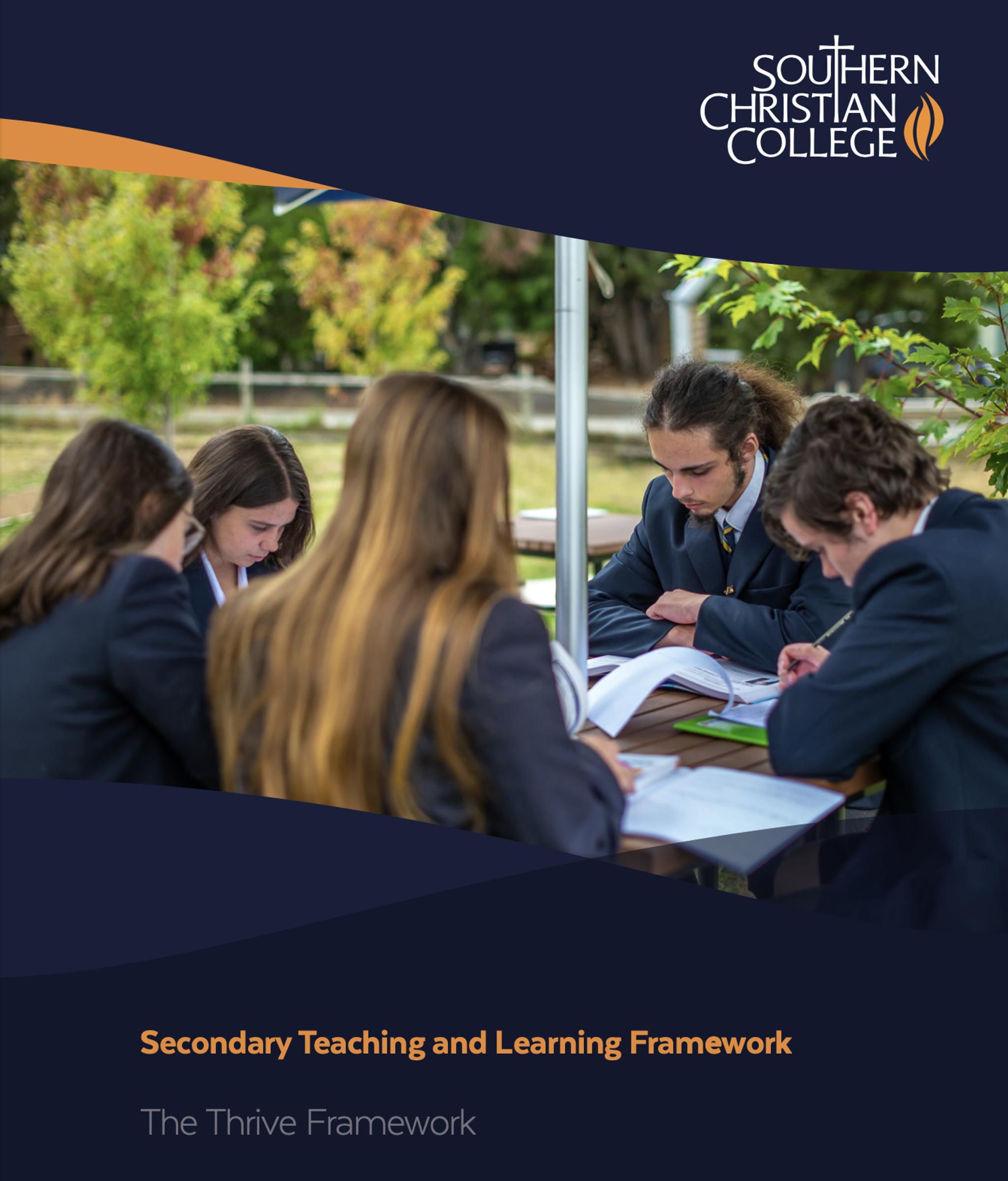Weekly Update - Thrive Framework

Secondary Thrive Framework
Each week, I am unpacking a little more of the new Secondary Thrive Framework that will be implemented in 2024. Last week, I started to unpack the first piece of the Framework, the Curriculum element. I shared that one of the underlying principles is the importance of a knowledge-rich curriculum. This forms a foundation on which students can build more specialised learning later.
This week, I will address some of the themes that run through the curriculum. The first three come from the Australian Curriculum. These are:
- Sustainability
- Aboriginal and Torres Strait Islander Histories and Culture
- Asia and Australia’s engagement with Asia
These are considered priority areas in which all students in Australia are expected to have a solid foundation. They are not topics that are addressed in isolation but are woven into each of the subject areas we teach. These themes may be evident, for example, in a text studied in English, within a unit of inquiry in Science or SOSE (Studies of Society and the Environment), or in the techniques or artists studied in Art. Within our languages classes, our students are certainly addressing the third theme as they learn about the culture of Indonesia and Japan and Australia’s connections to our Asian neighbours. By exploring the themes through different subject lenses and revisiting these each year, students develop increased breadth and depth of understanding.
As a Christian school, we have one additional theme embedded within our approach to curriculum. As a staff, we refer to it as the Christian distinctive. Within units of inquiry, there will be elements of the learning that connect to the Christian message. This may be connections to biblical content, to underlying principles or to the values we draw from our Christian worldview. These connections are intended to be authentic.
A UNESCO publication defined education as the process of learning to know, do, to be, and to live together. I find this definition helpful as so many areas of learning, especially within the Secondary school, require students to engage with value-based or moral questions. Recent discussion related to AI, for example, draw attention to how issues of bias, equity, truth and integrity relate to both the current and potential future use of AI in the wider community. We want to have a context to be able to unpack the assumptions that underpin areas of knowledge, to identify the contribution of our cultural heritage on the way we live together in society and for students to develop their own personal value system.
Jodie Bennett
Principal
